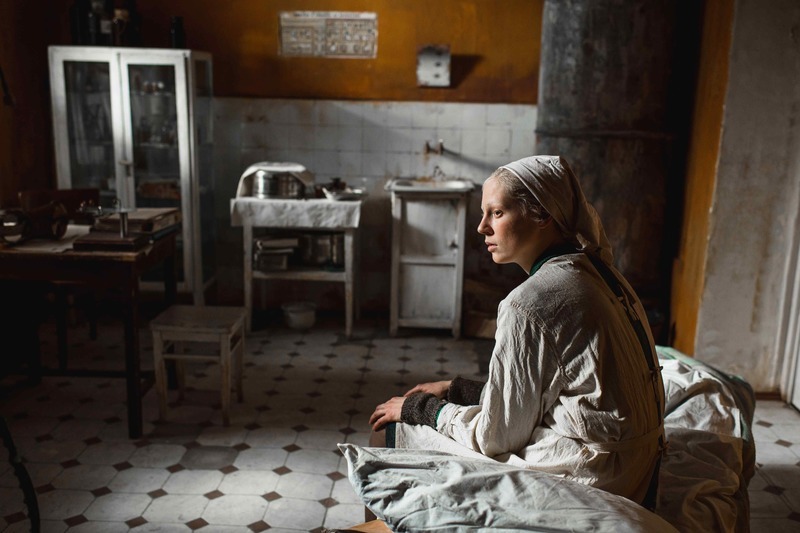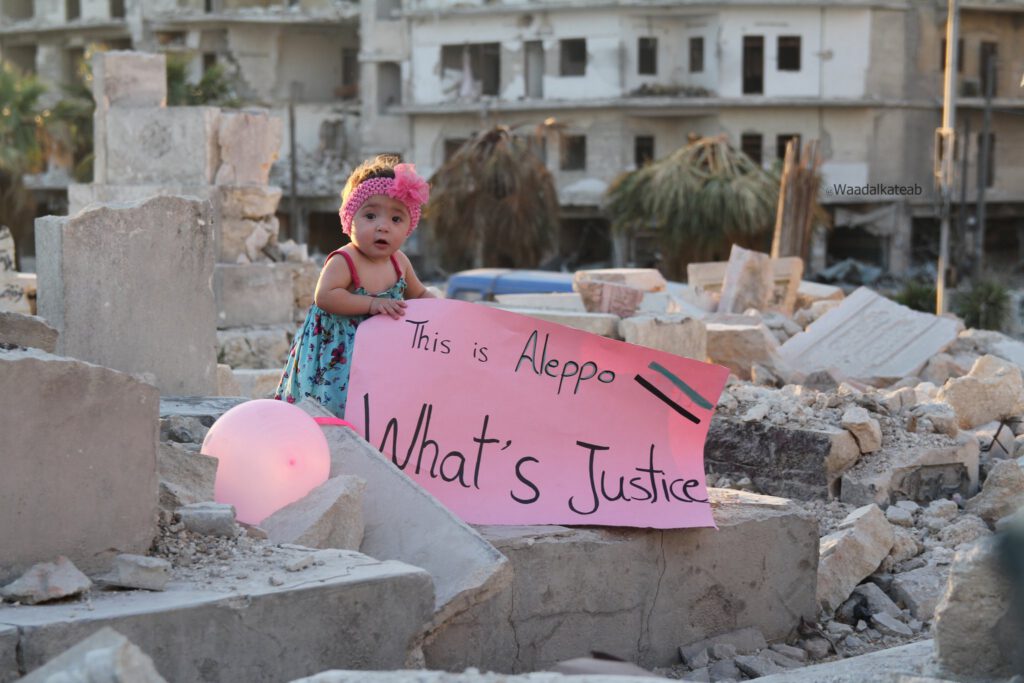In one of many startling moments in the documentary “For Sama,“ a first-person account of life during the siege of Aleppo, Syria, the camera watches the face of the filmmaker’s baby daughter as bombs go off outside. The girl, Sama, looks entirely unfazed. In this rebel-held section of Aleppo, where Sama spent the first year of her life, the sounds of bombs are simply normal—the only world she has ever heard.
Shown in Cannes’ special screenings section and scheduled for release in the U.S. in July, “For Sama” captures the details of daily life under the Syria conflict better than any documentary I’ve yet seen. Waad al-Khateab, who shares directing credit with Edward Watts, filmed the movie herself, and her diary-like perspective removes any sense of distance that might come from watching these images on TV news. We see what’s it’s like to live in a home that suddenly fills with smoke or where the lights go out; what it’s like to hold a wedding where the songs compete with noise from explosions; what it’s like to stand on a rooftop balcony as artillery rattles in the background; or what it’s like to warm yourself with hot shrapnel—all as if it’s simply normal.
Al-Khateab, who narrates, describes the movie as a letter to Sama, who was born on the first day of 2016 and, for the remainder of that year, lived in a hospital with her parents. Fighting in the city officially ended that December, when forces challenging Bashar al-Assad’s government withdrew. Al-Khateab wonders aloud whether her daughter will blame her more for leaving then or for staying as long as she did.
One of the things that affords her such amazing access is that the man she eventually married, Hamza, is a doctor and activist. When a hospital he works at is bombed—the death toll is given as more than 50, including the doctor who checked Sama’s first vital signs—he helps set up a new one. Al-Khateab’s camera is even present to capture the carnage at the last hospital in the city. The water is cut off before the horrors there are done.
“For Sama” proceeds non-chronologically, shuffling between 2012 and 2016, and the fragmentation helps to heighten the sense of desensitization; when al-Khateab talks about wandering out of the hospital with Sama because she needed to see people alive for a change, the sense of the disarray and delirium of war is palpable. So is the humanity. The movie puts faces to a conflict that has been all too easily reduced to abstractions and talking points.

“Beanpole,” which showed in the Un Certain Regard section, is also about the psychological toll of war, albeit a war that’s at several decades’ safe remove. The Russian director Kantemir Balagov, had a highlight in the section two years ago with “Closeness,” about the effects of a kidnapping on a sheltered, strictly observant Jewish family. “Beanpole” confirms him as a major talent.
And he’s a young talent. Born in 1991, he is part of a generation of Russian filmmakers who have lived their entire lives after the fall of the Soviet Union. That makes his choice of setting for the film—Leningrad in 1945, after the war—especially provocative.
The title comes from the nickname of the tall and lanky main character, Iya (Viktoria Miroshnichenko), who works at a hospital. She cares for a small boy, Pashka (Timofey Glazkov), who it initially appears is her son. Early on, the doctor she works for, Nikolay (Andrey Bykov), cuts her and the child in on some rations.
But Pashka is actually the son of Iya’s friend Masha (Vasilisa Perelygina), whom she befriended while they served together on the front. Neither woman escaped the war entirely intact. The movie opens with Iya having a seizure, a recurring condition that the film implies is the result of concussive injury in combat. And Masha, who says she suffered a wound from shrapnel, is no longer able to have children, though she desperately wants another.
With this setup, “Beanpole” presents a powerful portrait of mutual need. The women both lean on and exploit each other in a milieu where class is still destiny (Masha enters into a dalliance with a younger man from a higher social statrum) and the government’s eye is ever present. (Under the risk of discovery, Iya and Nikolay have been secretly been assisting in the suicides of wounded veterans who will never recover.)
“Beanpole” is dense and allusive enough that I suspect it will look even richer viewed outside of as frenzied a context as Cannes. But Balagov’s skill as a filmmaker—there’s one extraordinary long take involving Iya and Pashka that I’m reluctant to give away—is beyond doubt.












